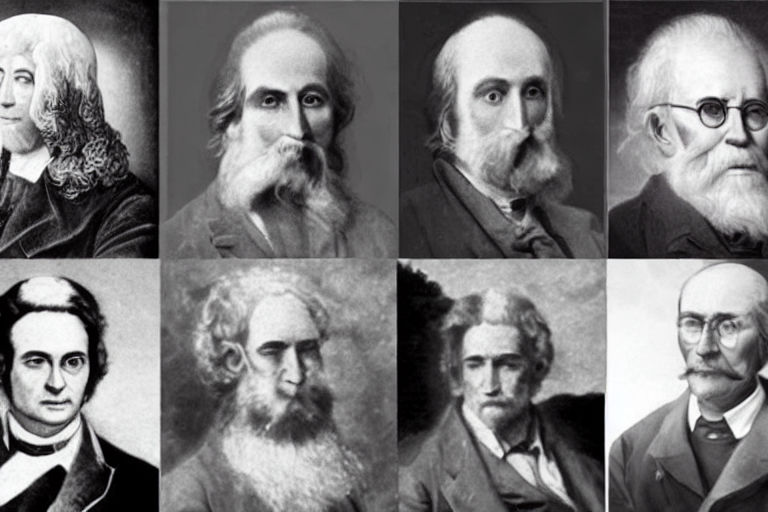Meet the Math Geniuses You've Never Heard Of: Pioneers and Unsung Heroes of the Field
When we think of mathematicians, the first names that come to mind are often Einstein, Gauss, or Newton. However, the truth is that there have been countless other brilliant minds in the field of mathematics who have made significant contributions to our understanding of numbers, geometry, and more. In this post, we will introduce you to five math geniuses you may not have heard of but should definitely get to know.
1. Ada Lovelace (1815-1852)
Ada Lovelace is often referred to as the world's first computer programmer. She was born in London in 1815 and, from a young age, showed a talent for mathematics. Ada was particularly interested in the work of Charles Babbage, an inventor who designed the "Analytical Engine," an early mechanical computer. Ada collaborated with Babbage and wrote a series of notes describing how to program the Analytical Engine to calculate Bernoulli numbers. This makes her the first person to write an algorithm for a machine, and thus the world's first programmer.
2. Emmy Noether (1882-1935)
Emmy Noether was a German mathematician who made significant contributions to abstract algebra and theoretical physics. She is best known for Noether's Theorem, which connects symmetries in physics to conservation laws. This theorem is widely used in modern physics and has been instrumental in the development of many theories, including Einstein's theory of general relativity.
3. Srinivasa Ramanujan (1887-1920)
Srinivasa Ramanujan was an Indian mathematician who made important contributions to number theory, infinite series, and continued fractions. His work was largely unrecognized during his lifetime, but he is now recognized as one of the greatest mathematicians of the 20th century. Ramanujan worked in almost complete isolation from the mathematical community and had an amazing ability to find patterns and relationships in numbers.
4. Sophie Germain (1776-1831)
Sophie Germain was a French mathematician who made important contributions to number theory and was the first woman to win a prize from the Paris Academy of Sciences. She was largely self-taught and had to study in secret because her parents did not approve of her interest in mathematics. Germain's work laid the foundation for the study of elasticity, and she was the first person to develop a theory explaining the vibration of elastic surfaces.
5. John Horton Conway (1937-2020)
John Horton Conway was a British mathematician who made important contributions to group theory, number theory, and combinatorial game theory. He is best known for inventing the "Conway's Game of Life," a cellular automaton that simulates the behavior of biological systems. This game has become a popular topic of study in computer science, and has led to new discoveries in fields ranging from biology to physics.
Conclusion
These math geniuses may not be as well-known as some of the more famous names in mathematics, but their contributions to the field have been invaluable. From Ada Lovelace to John Horton Conway, these mathematicians have helped us better understand the world of numbers and given us new tools to solve problems. We can all learn something from their brilliance and dedication to the pursuit of knowledge.



